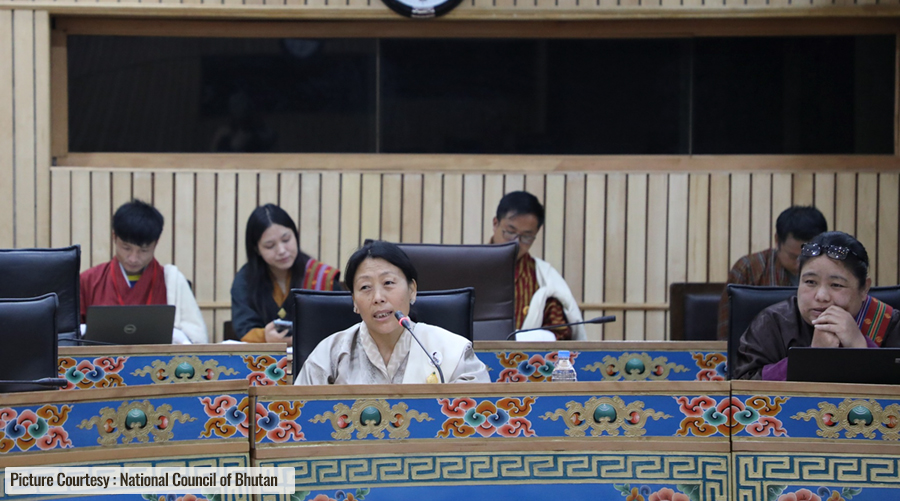
Farmers across the country could get compensated for their crops damaged by wildlife and natural disasters, if the National Council’s Natural Resources and Environment Committee’s recommendation is passed by the parliament this summer. The committee is preparing to present its findings on compensation policies regarding human-wildlife conflicts and crop damage caused by natural disasters during the upcoming National Council session. According to the committee chairperson, the country’s policies concerning compensating affected farmers are not being implemented due to ambiguity in the acts.
From cattle depredation by tiger in Nubi Gewog of Trongsa to elephants damaging crops in the southern districts of the country, besides crop damages from incessant rain, heavy winds, and untimely snowfall, the agriculture community in Bhutan continues to face numerous challenges.
Despite the longstanding nature of these issues, the government currently does not provide compensation to farmers although regulations and acts mandate the government provide compensation.
“There are Acts like there is Forest and Nature Conservation Act, Disaster Management Act is there, and Agriculture and Livestock Act is there, wherein they are saying that in the event of human-wildlife conflict or any damages caused by natural calamities, the farmers have to be compensated. But the thing is that there is no clarity on amounts to be compensated. For instance, if a cow is being killed by a tiger, how much will the farmer or the owner of that cattle be compensated? And also for example, if a windstorm or a hailstone has damaged one acre of paddy field, then how much to be compensated? So this is not clearly given in the Act,” said Ugyen Tshering, Chairperson of the Natural Resources and Environment Committee.
Currently, two insurance schemes are being discussed for affected farmers. The Ministry of Energy and Natural Resources is preparing to launch an insurance scheme for human-wildlife conflicts in six gewogs of Trongsa, Sarpang, and Zhemgang.
Meanwhile, the Ministry of Agriculture and Livestock is planning to develop Crop and Livestock Insurance for select commodities. The priority crops include rice, maize, potato, and orange. Likewise, priority livestock includes cattle, poultry, and piggery.
The ministry has proposed to allocate nearly Nu 2bn in the 13th Five-Year Plan for this initiative.
 The National Council’s Natural Resources and Environment Committee convened a consultative meeting with officials from the Finance Ministry to discuss the policies. During the meeting, the Finance Secretary expressed the ministry’s concerns regarding the implementation of the insurance schemes as the two would incur the government huge amount of money.
The National Council’s Natural Resources and Environment Committee convened a consultative meeting with officials from the Finance Ministry to discuss the policies. During the meeting, the Finance Secretary expressed the ministry’s concerns regarding the implementation of the insurance schemes as the two would incur the government huge amount of money.
The Secretary, instead, suggested strengthening the existing policies.
“If our recommendation is passed by the National Council and if we give it to the government of the day, then we are going to propose whether we should insert a new section in the Act or should we refine these policies to compensate the farmers,” said Ugyen Tshering, Chairperson of the Natural Resources and Environment Committee.
As of 2022, the agriculture sector supported approximately 43 per cent of employment, with 61 per cent of the population residing in rural areas relying directly on agriculture and livestock for their livelihoods.
The agriculture sector contributes over 14 per cent to the country’s GDP.
The chairperson said that failure to address such issues could aggravate problems including rural-urban migration and, worse still, prompt people to seek opportunities abroad.
Samten Dolkar
Edited by Phub Gyem









